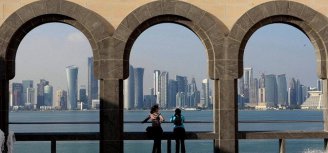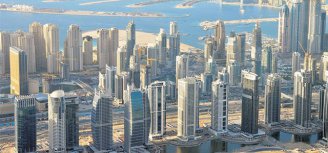

One of our clients requires following staff for Dubai, UAE: DETAILS SALARY 1. Industrial Electricians (Qty 5) 1500 AED 2. Pipe Fitters (Qty 5) 1300...
Last Date : 12-03-2015One of our clients requires Painters for Dubai, UAE: 1. Painters for outdoor/indoor/aluminum 2. Salary 800/- AED plus OT initially but will be incre...
Last Date : 27-02-2015One of our clients requires HELPERS FOR OIL RIG for Abu Dhabi, UAE: (URGENT) 1. 300 Helpers for Oil and Gas Drilling Rigs 2. Salary 1200/- AED 3. ...
Last Date : 03-03-2015
High quality global journalism requires investment. Please share this ...
Monday, 12th Jan, 2015
The UAE offers an exceptional opportunity for high achieving managemen...
Tuesday, 13th Jan, 2015
High quality global journalism requires investment. Please share this article with others using the link below, do not cut & paste the article. See our Ts&Cs and Copyright Policy for more detail. Email ftsales.support@ft.com to buy additional rights.
The time taken to attain EM status reflects the rigour of the MSCI process and the importance which investors attach to the classification. It has been a long road for everyone – exchanges, regulators, custodians, brokers and asset managers. But, if it was easy, investors would not value it.
High quality global journalism requires investment. Please share this article with others using the link below, do not cut & paste the article. See our Ts&Cs and Copyright Policy for more detail. Email ftsales.support@ft.com to buy additional rights. http://www.ft.com/cms/s/0/cc60b95e-d8cb-11e2-a6cf-00144feab7de.html#ixzz3OiNIJqr4
The result is that institutional players are now looking at the Gulf again and in some cases are investing for the first time in five years. As a result of the upgrade, we expect that $430m will flow into Qatar and $370m into the UAE markets from passive index investors over the course of the next year.
Amid the celebrations, however, perhaps a word of caution is in order. The upgrade does not mean that everyone can, or should, relax. In the first place, some of our biggest regional markets, Saudi Arabia most obviously, are not in the running for EM status. And, when it comes to Qatar and the UAE, activist emerging fund managers, who can still be overweight or underweight an index, need to be courted and retained.
The $800m is our quantitative team’s estimate of the passive index funds which will be automatically allocated. We estimate that at least five times that figure – an additional $4bn in actively managed funds – could be available for investment in the Qatar and UAE markets alone. More needs to be done to attract and retain these funds.
A large pool of institutional money pulled out of the GCC in the wake of the 2008-2009 crash. Yet institutions, critically, engender more stability in equity markets which are central to the widening and deepening of economies.
In the primary sense, family companies looking to list and private equity operators looking to divest need buoyant, or at least rational, markets in which to sell their shares.
We have observed cases where family businesses in the GCC which may otherwise have taken the plunge of listing have opted not to because local markets have historically been subject to extremes of euphoria or the depths of despair.
The participation of institutions, which are long-term, fundamental investors, is thus a critical piece of equity market development.
How to attract and retain them? In the first place, our markets are narrow. They are dominated by financial and real estate stocks with a smattering of telecoms. It would be great to see some more consumer shares listed, some more telecoms and hospitality and tourism shares on offer – perhaps even an airline.
Secondly, foreign ownership limits which remain in place across the Gulf should be raised – perhaps gradually but raised nonetheless. In Qatar, only 25 per cent of most companies can be owned by foreigners. In the UAE it is 49 per cent.